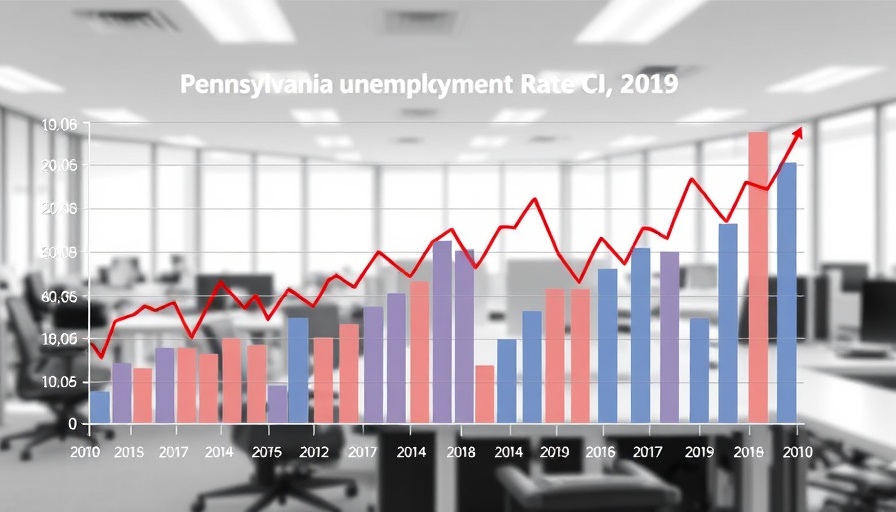
What's Happening in Pennsylvania's Job Market?
As of February, Pennsylvania's unemployment rate holds steady at 3.8%, remaining below the national average which has risen to 4.1%. This news might sound encouraging to many residents, but it conceals the fluctuations within the job market that are affecting our communities. While it's good to know that we're faring better than much of the nation, understanding the broader trends is essential for Pennsylvania residents looking to navigate their financial futures.
The Current Job Landscape in Pennsylvania
The Pennsylvania Department of Labor and Industry recently reported that the commonwealth's civilian labor force decreased by 3,000, indicating a subtle contraction in the available job pool. Unemployment did rise by 2,000 in February, which signals that while job security is somewhat stable, it may not be as robust moving forward. In comparison, during the same period last year, the unemployment rate was slightly lower at 3.6%.
Job Gains and Losses Across Sectors
It's important to delve into the sectors driving these numbers. For instance, despite a decrease in total nonfarm jobs to 6,190,800 in February, there were significant gains reported in the education and health services sectors, which increased by 4,700 jobs. This signals a growing demand for services in these essential fields, a trend that could continue as the healthcare sector adapts to ongoing challenges.
Understand the National Context
On a national scale, the U.S. unemployment rate climbed by four-tenths of a percentage point. This rise indicates broader challenges in labor markets across various states, suggesting that economic recovery is uneven. Factors such as inflation, supply chain issues, and changing consumer behavior are contributing to this instability, leaving many job seekers uncertain about the future.
Why Understanding Unemployment Matters
The unemployment rate isn't just a number; it speaks volumes about economic health and individual opportunity. For everyday Pennsylvanians, rising unemployment can weigh heavily on household budgets, and understanding this dynamic is essential for planning future financial decisions.
Healing Through Education and Health Services
As noted, Pennsylvania experienced substantial year-over-year job growth, particularly in education and health services, which added a remarkable 41,800 jobs since February 2024. Residents may find new education or training programs emerging as a response to the demand in these sectors. Subsequently, connecting with community colleges or vocational training centers could provide individuals with new pathways to enter or re-enter the workforce.
Looking Ahead: Preparing for Future Trends
While factors affecting employment are in constant flux, individuals can take proactive steps. For instance, consider ongoing training or upskilling in areas destined for growth, such as technology and health sciences. Understanding which industries are expanding can give job seekers a competitive edge.
Seek Community Support
It's also beneficial to keep an eye on local initiatives that aim to support employment growth. Community engagement through job fairs or local government programs can provide insights and connect individuals to available opportunities. Programs aimed at bridging the gap between education and employment, such as the Schools-to-Work initiative, can also be instrumental.
Your Financial Future Starts Now!
In conclusion, while the unemployment rate in Pennsylvania is steady, it masks underlying shifts in the job market that affect local communities. Whether you're looking for a new job, wanting to pivot your career, or just seeking ways to stay informed, understanding these trends is vital. Explore training programs and community resources that can bolster your prospects. The path to financial stability is often paved with knowledge and the willingness to adapt to changes.
For updates on job opportunities and initiatives in Pennsylvania, keep exploring news platforms, local business resources, and government websites. Don’t hesitate to take the next steps towards your financial well-being—your future depends on it!
 Add Row
Add Row  Add
Add 




Write A Comment